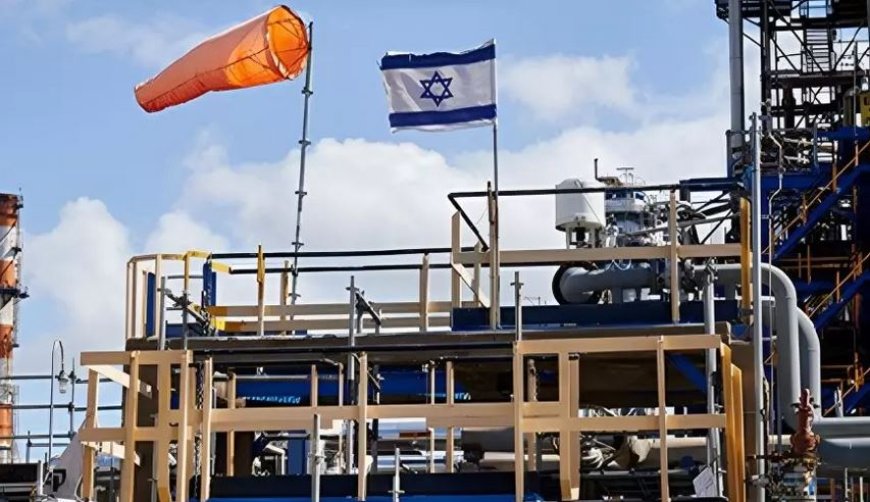Fueling Occupation: The Secret Oil Routes to Tel Aviv
The Kurdistan Region, caught in disputes with Baghdad, needs customers who quietly pay cash. The Zionist regime, with pockets full of Western dollars, plays this role. From the perspective of resistance groups, this deal is not only a betrayal of the Palestinian cause but also an attempt to weaken Iraq's unity and increase Zionist influence in the region. Analysts believe this trade has turned the Kurdistan Region into an autonomous actor sacrificing Iraq’s national interests.

It is nighttime, and thick fog has swallowed the Zagros mountain passes. A convoy of oil tankers, bearing vague and faded flags, passes through the dirt roads of northern Iraq. The drivers—nameless shadows—have only one order: to deliver the cargo to an unknown Mediterranean port. But this oil, smelling of power and betrayal, is destined for the occupied territories; a place where the Zionist regime, in a network of secret deals, is thirsty for energy. This story is not about heroes but the intricate fabric of oil, politics, and geopolitics that has turned Iraq's Kurdistan Region and Azerbaijan into vital arteries for the regime.
This dangerous game is part of a larger conspiracy to consolidate occupation and weaken the Axis of Resistance. Zagros, the beating heart of hidden oil beneath the Zagros Mountains, houses the oil wells of the Kurdistan Region, pumping day and night. Barrels are filled, but not for official markets. In Erbil, behind the closed doors of glass towers, traders sign contracts that never reach the media. Reports indicate that intermediary companies with Zionist connections transport Kurdistan oil through Turkey to the ports of Haifa and Ashdod. The Iraqi central government calls this trade “organized smuggling,” but huge profits have silenced voices. “It’s like a spy movie; oil changes identity at the borders,” said an analyst. Tankers pass through Turkey’s borders in the dark, documents are forged, and shipments reach the regime under the names of cover companies.
Why Kurdistan?
The Kurdistan Region, caught in disputes with Baghdad, needs customers who quietly pay cash. The Zionist regime, with pockets full of Western dollars, plays this role. From the perspective of resistance groups, this deal is not only a betrayal of the Palestinian cause but also an attempt to weaken Iraq's unity and increase Zionist influence in the region. Analysts believe this trade has turned the Kurdistan Region into an autonomous actor sacrificing Iraq’s national interests.
Baku, the Silent Ally in the Caspian
Thousands of kilometers away, on the shores of the Caspian Sea, Baku’s oil platforms shine beneath a gray sky. Azerbaijan’s capital, with skyscrapers risen from oil revenues, is the scene of a hidden deal. Reports suggest a significant portion of Azerbaijan’s oil exports reaches the Zionist regime. The Baku-Tbilisi-Ceyhan pipeline, the lifeline of this trade, transports oil from the Caspian to Turkey and then to the regime’s ports. Azerbaijani officials have denied this cooperation for years, but truth, like oil, finds a way to leak. “Baku and Tel Aviv are shadow partners.” This relationship goes beyond oil; Israeli drones fly over Azerbaijan’s skies, and arms contracts bind the two parties.
From a geopolitical perspective, Azerbaijan serves as a strategic base for the Zionist regime in the Caucasus, right next to Iran, and is part of a project to contain Iran and strengthen Zionist influence in the region. Azerbaijan’s economic dependence on this trade has made it vulnerable to Russia, which is angry about the regime’s influence in the Caucasus.
Turkey also plays a key role as the “invisible bridge” with the port of Ceyhan. Turkish companies, receiving large commissions, manage the transit of Kurdistan and Azerbaijan oil. Georgia, by opening its territory, has also joined this chain. European companies, by buying and selling oil in third-party markets, erase the traces of these transactions. Imagine a man named “Yusuf,” a trader negotiating with Zionist intermediaries in a dark café in Istanbul. He signs contracts, but his name never appears in documents. This network, like a spider web, keeps the Zionist regime at its center. Analytically, this system not only hides the regime’s dependence on Islamic countries but also, by creating opaque layers, makes sanctions or tracking difficult. This is part of the West’s strategy to sustain the regime’s occupation.
This energy game has turned the region into a tense arena. In Iraq, Kurdistan oil trade has weakened the central government and deepened the rift with Baghdad. In the Caucasus, Azerbaijan’s relations with Iran have cooled, and even Russia pressures Baku to maintain its influence.
These deals not only reinforce occupation but also make regional countries vulnerable to Western pressures. Analysts believe this energy network is part of the regime’s strategy to reduce dependence on global markets. By securing most of its oil from Islamic countries, the Zionist regime has lowered the risk of international sanctions. But this strategy intensifies regional tensions. Kurdistan and Caspian oil keep the regime’s refineries alive. But this story ends bitterly. “They think they are hidden in the shadows, but the trace of oil is always found.”
Translated by Ashraf Hemmati from the original Persian article written by M. Alipour













































